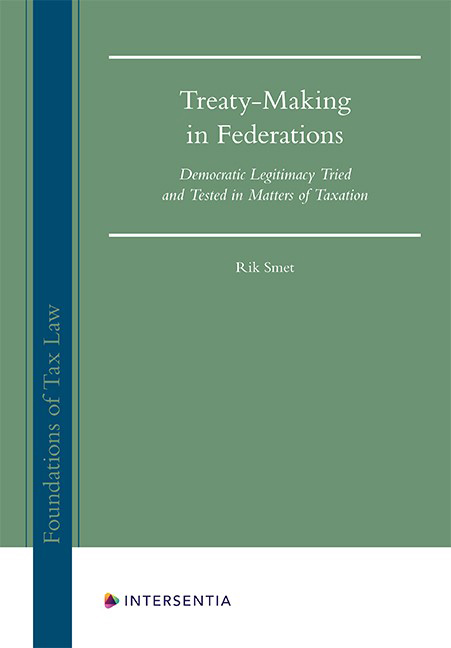Chapter 5 - Belgium: The Competence and Power to Tax and their Relation to DTCs
Published online by Cambridge University Press: 22 February 2022
Summary
FROM COMPETENCE TO POWER
As mentioned (Chapter 1, section IV ‘Working Definitions’) sovereignty is a precondition for the division of competences within a state. For if a state is not sovereign, how could it determine independently how competences are distributed over different levels of government or between different organs of the state? It is the constitutional system of the sovereign state that is, therefore, the ultimate source of any competence. Sovereignty thus internally refers to the highest possible authority and externally refers to the freedom of conduct for the state in the international legal order. It is up to the federation itself to determine how (in this case, tax) competences are distributed.
The subtle, but essential difference between competence to tax and power to tax has previously been pointed out and the fact that terminology is a considerable source of misunderstanding has also been established. ‘Jurisdiction to tax’ is then the generic English term that may refer to both the competence and the power to tax.
In international law, the distinction between the competence to tax and the power to tax, in a certain sense is a matter of ‘who could’ versus ‘who can’. Whereas rules regarding the competence to tax determine in abstracto which entities could tax if they wanted to, the power to tax refers to what they actually can do with this authority, i.e. the (potential) in concreto use of this competence in line with the overarching legal framework.
Competence to tax, then, refers to the origins of the state's taxing powers. There can be no power to tax without competence to tax. An entity must first be competent to tax, before it can choose to indeed make use of it. The power to tax, then, concerns the way in which the state may legally make use of that competence.
The competence to tax requires some kind of nexus, meaning that only taxable objects or subjects with a sufficiently close connection to the state can be subjected to tax. This is perhaps not a positive rule of international law – at least not yet – but it is a principle that is consistently taken into consideration by national (tax) legislatures.
- Type
- Chapter
- Information
- Treaty-Making in FederationsDemocratic Legitimacy Tried and Tested in Matters of Taxation, pp. 217 - 242Publisher: IntersentiaPrint publication year: 2021

